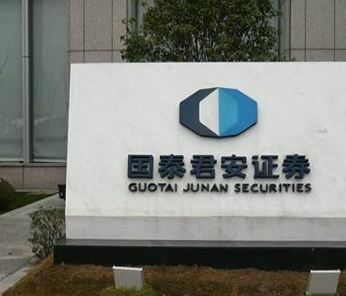BEIJING, Dec. 13 (Xinhua) -- Guotai Junan Securities (GTJA), a well-known securities company in China, was lately awarded four golden bull prizes at the 2019 China Securities Industry High Quality Development Forum held by China Securities Journal in Beijing.
The golden bull prize, a financial brand built by China Securities Journal, has become the most influential prize in China's capital market involving public offering funds, private equity funds, listed companies, securities industry analysts, overseas funds and other sectors.
The awards won by GTJA are namely the "2019 Golden Bull Securities Company", the "2019 Golden Bull Investment Banking Team", the "2019 Golden Bull Wealth Management Team" and the "2019 Golden Bull Asset Management Team".
In the past two years, GTJA has achieved all-round development in equities, bonds, mergers & acquisitions, "new third board" (China's National Equities Exchange and Quotation) and other businesses.
Besides, its market influence kept expanding. By September 2019, the company's stock underwriting amount reached 372.3 billion yuan, ranking fourth in the market. In particular, its businesses in stocks, corporate bonds and financial bonds ranked third in the industry.
In recent years, GTJA has provided more than 12.86 million clients with market transaction, market information, financial consulting and other services.
Besides, it has provided over 240,000 high-net-worth clients with wealth management advice through investment advisory contract and financial planning services. It also offered comprehensive solutions such as customized asset allocation and financial planning to more than 30,000 high-net-worth and ultra high-net-worth clients.
The company has also made recognizable performance in asset management. As of September 2019, the assets managed by Guotai Junan Securities Asset Management Co., Ltd., a wholly-owned subsidiary of GTJA, reached 773.5 billion yuan, 22.8 billion yuan higher than that of 2018, with active asset management scale hitting 467.1 billion yuan, up 50 percent from the end of 2018. (Edited by Gu Shanshan)




 A single purchase
A single purchase









